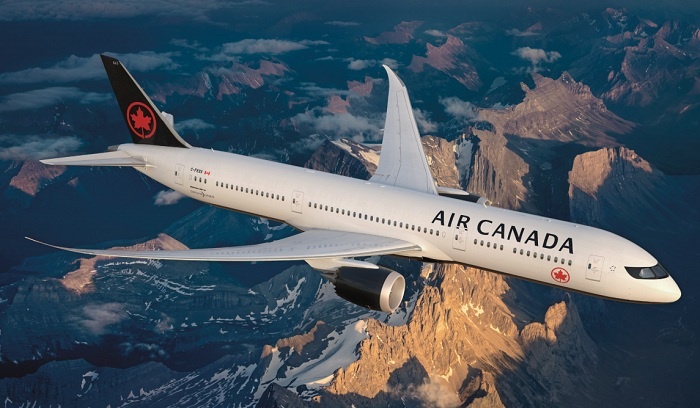
Air Canada sees strong second quarter but warns of Boeing 737 Max trouble ahead
Air Canada has reported second quarter EBITDA of $916, up from the figure of $739 million reported last year.
The airline reported second quarter 2019 operating income of $422 million, compared to second quarter 2018 operating income of $308 million.
At the same time, the carrier reported adjusted net income of $240 million or $0.88 per diluted share in the second quarter.
Shares in Air Canada were up 3.5 per cent, to 46.6 Canadian dollars, following the release of the results.
“I am delighted to report an excellent second quarter, including record operating revenues of $4.757 billion and record liquidity of nearly $7 billion.
ADVERTISEMENT
“Although our results exceeded expectations, the Boeing 737 Max grounding negatively impacted EBITDA growth year-over-year,” said Calin Rovinescu, chief executive of Air Canada.
Second quarter 2019 net income amounted to $343 million or $1.26 per diluted share, compared to a second quarter 2018 net loss of $102 million or $0.37 per diluted share.
The second quarter of 2019 included foreign exchange gains of $117 million while the second quarter of 2018 included a loss on disposal of assets of $186 million and foreign exchange losses of $82 million.
“The impact of the Boeing 737 Max grounding will be felt more acutely in our very busy summer period and, as a result, third quarter EBITDA is expected to increase approximately five per cent versus the third quarter of 2018.
“Third quarter projected capacity is expected to decline approximately two per cent compared to the third quarter of 2018, as opposed to an originally planned capacity increase of approximately three per cent.
“In our planning, we will be removing the Boeing 737 Max from our schedule until at least January 8th, 2020.
“This reflects our prudent approach to scheduling, giving customers certainty when booking their autumn and especially their winter holiday travel.
“At present, we have no visibility on reliable timing for the return to service of the Boeing 737 Max as we await regulatory approvals.
“If the aircraft are returned to service earlier, we would look for opportunities to have some enter the fleet for either replacement flying or as back-ups,” said added Rovinescu.

